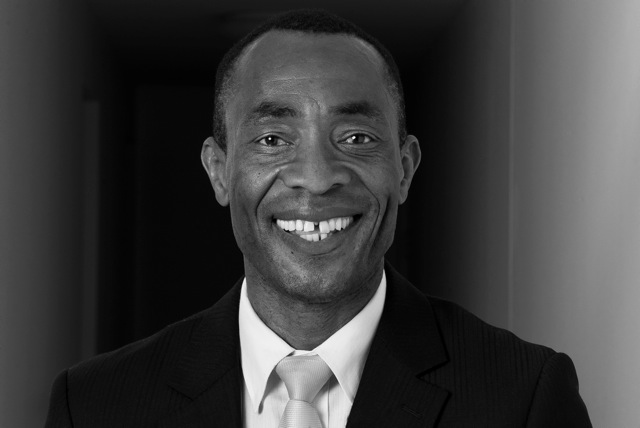
Reason has been in Australia for 11 years and first arrived as a skilled migrant on a 457 visa. Originally from rural Zimbabwe he worked as a high school teacher, teaching in schools where completion rates were low, especially for female students, who had a graduation rate as low as 30%. He also found himself supporting students and their families from his meagre wages but proudly states that ‘many of these students are now professionals working in high-flying roles’.
He had also worked as a youth worker, charity program officer and a senior civil servant in Zimbabwe. He did not really have any preconceptions about working life in Australia but his skill set was in high demand at the time so he did anticipate securing a role somewhere.
However, despite months of applications and gaining a limited number of interviews he was unable to secure a role in his profession. After approaching prospective employers at public and private schools (and completing the rigorous registration process to teach in high schools in Australia) he remained unemployed. Even after the registration process, which he was believed was the final step before job placement, he still had no job prospects.
At this point Reason said ‘I gave up, I had literally applied for all advertised roles and added myself to database pools, dropped into schools to personally deliver my resume, everything. I didn’t know what else to do. I had tried it all. I gave up’.
Like many immigrants, he had to change his strategy to enter the Australian workforce. Although disappointed he quickly adapted and developed a new career path in fundraising. To date, Reason has fundraised in excess of $3 million and he is one of the most well-known and respected fundraisers in N.S.W.
When prompted further about his cultural expectations and experiences in Australia. He replies simply “I did not really expect a replica of Africa here, but there were a few surprises, some of them pleasant, and some not so pleasant. Some were pretty petty and funny, like being asked if ‘you mingle with wild animals in Africa’.”
However, his frustrations with the long list of insults and ‘nicknames’ Africans and people of colour hear, such as Monkey, Negro and Nigger are obvious. As an educated man he has learnt to turn the other cheek but some experiences have left him shaken.
During his early days as a Face-to-Face Fundraiser for the United Nations Refugee (UNHCR) agency in Australia he “had a Caucasian man approach me on the streets in an aggressive manner ordering me to ‘go back to Africa’.”
On other occasions, people approached the fundraising booth to argue, ask provocative questions and make statements such as ‘Is this still about Africa?’ or ‘We have given you so much money and you still don’t know how to govern yourselves.’
“I guess for some we are still a bit of a novelty. People don’t look twice at you in the United Kingdom or the United States but here we still stand out. Maybe that’s why we still get the wild animal comments.”
Reason states that despite the ignorance of a few like the man who abused him on the street, he ‘did not for a moment take his sentiments as representative of the wider opinion of mainstream Australia’.
When asked if he changed his name for job applications and to gain interviews, Reason says “It is the literal translation of my birth name. It does gain extra attention and jokes – like people asking if it is my ‘rappers name. My name is not common here, it is the name given to me from my parents – so I will always use it. I have not had an experience where someone tried to give me a nickname or an anglicised name. That would be a bit patronising in my opinion.”
When asked if he thinks race can hinder employment opportunities in Australia and if racial discrimination is why many immigrants aren’t working in their area of expertise, Reason replies:
“I think the system of racial segregation in Australia’s corporate sector is so institutionalised that it’s hard to pin point where and how it occurs.”
He adds “You apply, get a call if you are lucky, go through a few interviews, and you are informed you were not successful. That happens to everyone and anyone, but you need to watch the staffing patterns to see where the success results are pointing. For the few that secure junior roles in the corporate sector, what soon becomes apparent is that career progression has a racial tint to it in some cases. Having said that, it’s not an exaggeration to say in most countries locals enjoy better privileges than foreigners.”
When asked if he knows of many migrants in high-ranking positions, he states ‘I know a few Africans in senior management for banks, one for ANZ, and I also know a few professors teaching in some universities’.
Now Reason runs his own small marketing business, ‘Quality Fundraising’.
“We fundraise across the country for various NGO’s. I realised that there was very little chance of me using my Masters in International Relations from Macquarie University as a qualification for employment. So I decided to create a job for myself and for others.”
Asked if he ever experienced or witnessed either ‘explicit’ or ‘casual’ racism in the workplace, Reason says “In my earlier days with fundraising I worked for a very big marketing firm specialising in Face-to-Face fundraising. I had a few cases of resentment from teammates after I had been promoted to team leader. But this could as well have been motivated by factors other than racism. I saw what I believed were signs of racial suprematism from some of the people I worked with, but I am a determined person, and I always want to prove myself.”
“I still have those rare occasions when someone walks into our offices, is referred to me for assistance, they see me and they say, “I would prefer to talk to someone more senior.” My back-end staff are Caucasian Australians, and we just laugh whenever that happens. The only time I really got affected was when someone walked into our offices saying he strongly suspected that my ‘African staff’ were most likely the ones responsible for some mess that was in one of the bathrooms. All our field staff had not been to the office that day, and I thought such prejudices must not have room in a civilised country like Australia.”
Interview by Alison Wilson. Photo by Emmy Etié.
